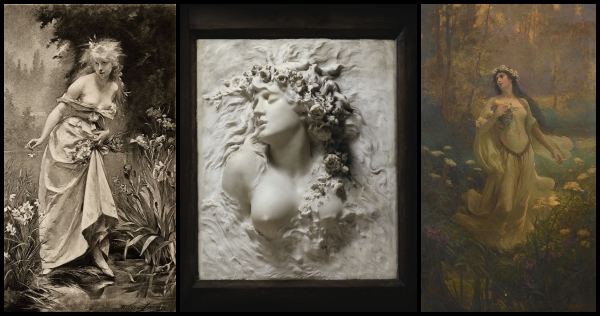Part 12: Ophelia and Hamlet as Orpheus and Eurydice

To her father in 2.1, Ophelia describes Hamlet’s frightening visit to her closet. In Ophelia’s description of Hamlet’s exit, Jonathan Bate finds an allusion to Orpheus' glance back at Eurydice as he leaves the underworld (left image), a Greek myth recently adapted for the Broadway musical, Hadestown. Ophelia describes Hamlet: [...] with a look so piteous in purport As if he had been loosèd out of hell To speak of horrors—he comes before me. [...] He took me by the wrist and held me hard. Then goes he to the length of all his arm, And, with his other hand thus o’er his brow, He falls to such perusal of my face As he would draw it. Long stayed he so. At last, a little shaking of mine arm, And thrice his head thus waving up and down, He raised a sigh so piteous and profound As it did seem to shatter all his bulk And end his being. That done, he lets me go, And, with his head over his shoulder turned, He seemed to find his way without his eyes, For out o’ doors he went without their he



